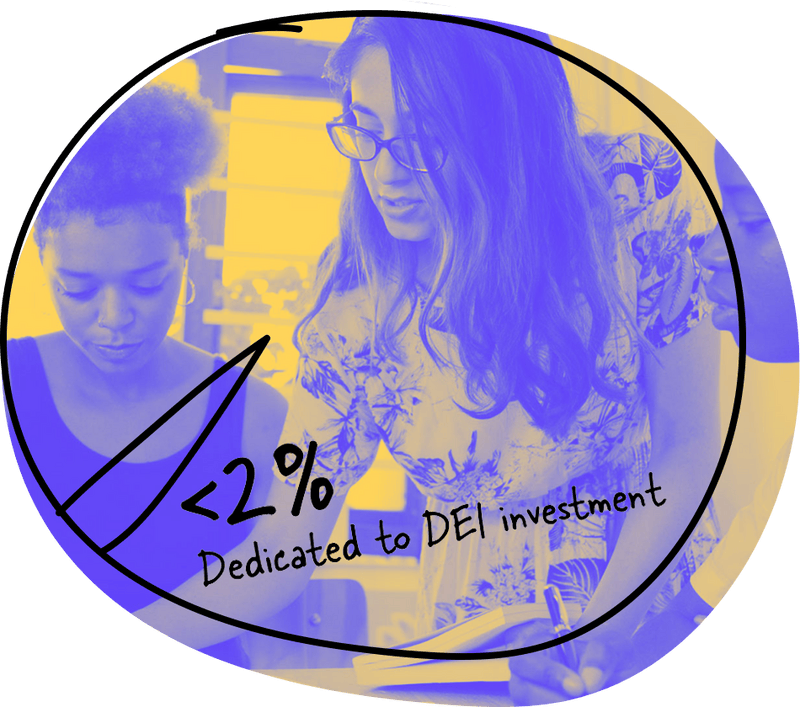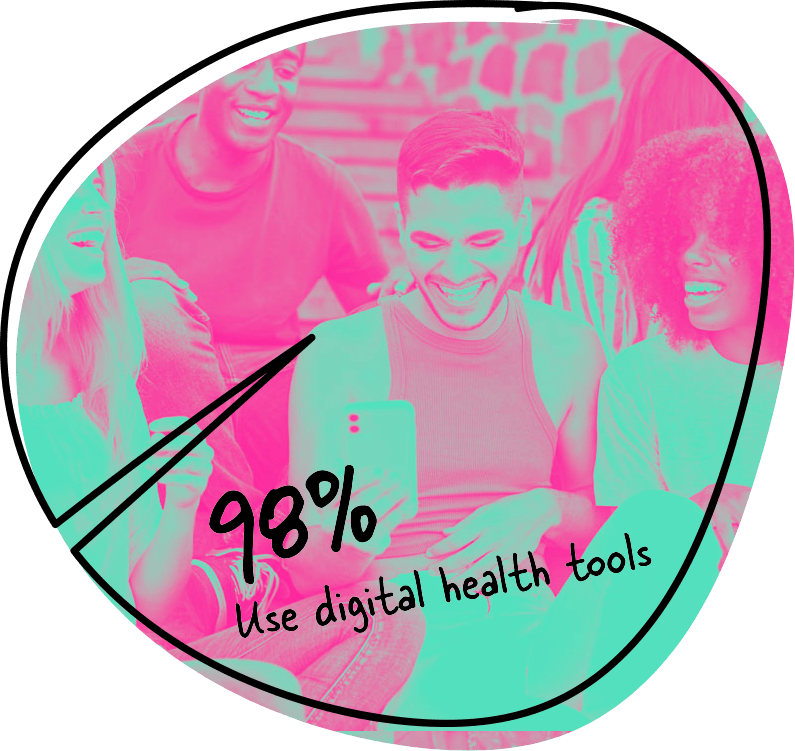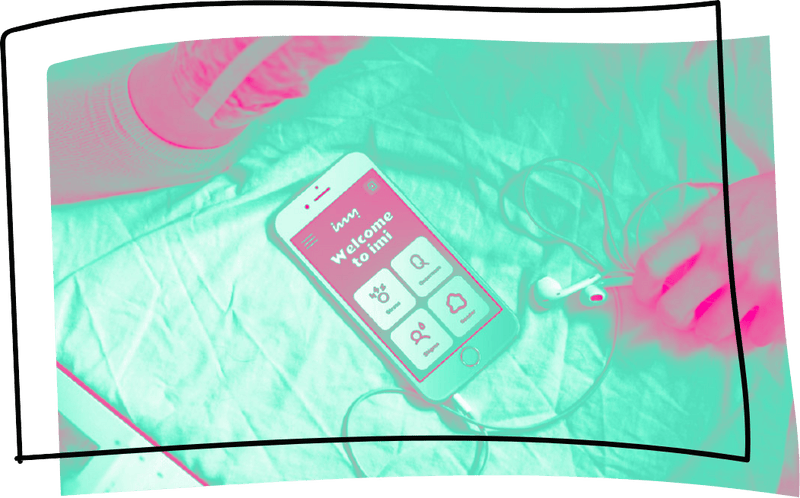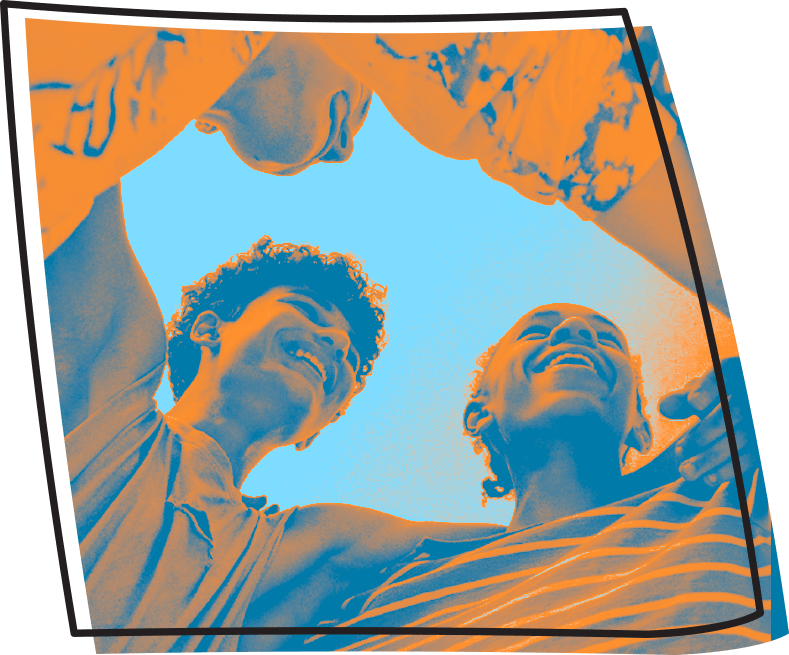At Hopelab, we support people and things that are good for youth mental health and well-being. The nature of our challenge is constantly changing, and taking on the youth mental health crisis requires big, coordinated shifts by many different people—from researchers and policy makers to entrepreneurs, investors and designers.
After 20 years of designing digital health products for youth, we took time to reflect and imagine how we might amplify our impact. We realized that it was less important that we invest in scaling our in-house products and more important that we invest in scaling our core beliefs: that solutions for young people should center equity, should be co-created, and should be evidence-based. If we could help more innovators do that, then we could improve the well-being of more young people.
We know that we can’t do this alone. The approach we’re taking is dynamic and coordinated, like a flock of birds. We come together with entrepreneurs, young people, academics and investors, each playing a role and working collaboratively to shape a future where young people can thrive. By sharing, challenging and learning from each other, we do something bigger than any of us could do alone. See our new direction in action and learn more about our work in Hopelab Ventures, Studio and Discovery through the stories below.


Lived Experience as a Competitive Edge
When Covid exacerbated the youth mental health crisis, venture capital investments in youth mental health soared. Too few of these companies focused on youth who struggle to access mental health resources or underrepresented founders. Hopelab saw an opportunity to support these founders who prioritize reaching underserved youth. Beyond a financial investment, we could offer a whole suite of support, such as access to our networks, measuring health outcomes, business model consultations, and product refinement with youth. We launched Hopelab Ventures in 2020, and our growing investment portfolio includes 12 founders who have collectively reached more than 320,000 people.

Less than 2% of venture capital funding went to DEI investments or underrepresented founders (The Equity Record 2022)
MindRight CEO Ashley Edwards talks about her inspiration for launching MindRight on an Acumen Academy webinar.
At Hopelab Ventures we see lived experience as an asset to the creative and entrepreneurial process. Take Ashley Edwards. As a former school administrative leader, she recognized the impact systemic racism and exposure to violence had on the mental health of many of her students. And yet there were few support options, let alone ones that young people felt excited about. “I got to work with a resilient community of students in Newark, but I kept asking myself why our kids have to be so strong,” she said. That’s why Ashley launched MindRight Health. Ashley knew MindRight was an opportunity to better serve communities who have a history of trauma and face systemic barriers to care.
We believe a good idea has a better shot at succeeding when a passionate founder applies the rigors of research and real-time feedback from users. The MindRight team created a trauma-informed mental health coaching experience for BIPOC youth. Because it was co-created with young people, it interacts with youth in a way that strongly resonates. And because they had clinicians on the team, Mindright built their product using the latest evidence and findings about what works in communities who have experienced deep trauma and discrimination.
We believe a good idea has a better shot at succeeding when a passionate founder applies the rigors of research and real-time feedback from users.
We were eager to leverage Hopelab’s expertise and networks to help MindRight reach as many young people as possible, so we tapped into our team and partners in a number of ways. First, we connected Ashley with Medicaid experts to ensure that MindRight’s services would be available to low-income youth. Then we advised on which health outcomes to measure and how, allowing Ashley to demonstrate that the intervention meaningfully improves youth mental health. With a strong case, we introduced the MindRight team to potential investors. Lastly, we were able to support MindRight on their communications and PR strategy. Wherever Hopelab had relevant expertise or networks, we were happy to bring them to bear. Today, MindRight serves youth across the country—with health insurance partners, including Medicaid, reimbursing the cost of care in New Jersey, Florida and Washington, DC. Companies like MindRight excite us because of their commitment to centering their users, health equity, and developing evidence-based solutions for young people.

320,000 people served by our 12 investees since 2020.
Companies like MindRight excite us because of their commitment to centering their users, health equity, and developing evidence-based solutions for young people.
“Hopelab is a true partner and ally. I feel seen not only as a founder, but also as a Black woman leading this work. They understand what it’s like to build from scratch in a field that’s broken.”
—Ashley Edwards, CEO + Co-Founder, MindRight (Forbes 30 Under 30 in 2018)


Tapping the Power of Queer Joy
Despite the many negative effects society inflicts on the mental health and well-being of LGBTQ+ youth, many queer young people are creating ways to explore their identities, find community and thrive. As the Trevor Project’s 2022 report on LGBTQ Youth Mental Health notes, LGBTQ+ youth are not inherently prone to suicide risk; they are placed at higher risk because of the bullying and stigma they experience. That’s why when Hopelab began developing imi—a tool to support the mental health and well-being of queer youth—we had one focus: affirming queer joy.

Almost 98% of LGBTQ+ youth have used digital health tools in some form (Coping with Covid-19 Report).
Jerie (she/they) explains what identity means and the different identities we hold.
Imagine presenting a prototype of a new product to a group of potential users and having it flop. This happened to the imi design team—more than once. imi started as an adaptation of Vivibot, a chatbot designed by Hopelab to support young adults with cancer by teaching positive psychology skills. User testing and rapid prototyping are some of the ways Hopelab Studio supports entrepreneurs and nonprofits to improve the products and services for young people. When we first tested imi with young queer people, it was clear this chatbot could not fully address the unique issues they face. “There were several conversations where we felt like we knew way less than our audience did,” said Starr (she/her), a Hopelab design intern, “but even when the feedback was negative, it was still exciting to get our prototype in the hands of real users and get their real insights.” Rather than feeling defeated, the design team felt humbled and motivated to build, listen, learn and iterate.
Two years later, with input from more than 600 LGBTQ+ youth, imi evolved from a chatbot to a queer astrology app, to its final form: a free, digital mental health tool built for and with LGBTQ+ teens to affirm their identity and help develop healthy coping skills. imi reached more than 42,000 youth within six months of launch and continues to evolve as queer youth share and explore via stories, illustrations, activities and resources rooted in queer joy.

Learn more about how we created imi.
Initial data from early testing with 270 teens indicates that imi is effective in supporting the well-being of LGBTQ+ youth and helping them cope with stress.


Infusing Purpose Anywhere Youth Are
Dr. Anthony Burrow explains why a sense of purpose is worthwhile and attainable at the 2016 PRYDE conference.
Purpose makes us more resilient in the face of adversity, and people who feel more purposeful have better health, well-being and social connection, as well as greater creativity and academic success. We believe that cultivating and nurturing a sense of purpose in young people is the way to a better world. While more than 30 years of academic research shows this, that science isn’t making its way into programs and services aimed at youth. Meanwhile, youth continue to experience crushing mental health, workforce and economic mobility challenges despite significant investment in civic, social and youth-focused solutions within the U.S. We believe purpose is a critical missing link where young people live, work and play, and we are excited to infuse purpose into these solutions.
At Hopelab Discovery, we’re working with psychologist and researcher Dr. Anthony Burrow. Together, we aim to connect scientists and youth-serving organizations in a dedicated space to explore how to best apply the science of purpose into everyday programming, so youth are surrounded by support and opportunity to cultivate a purposeful life. We imagine dynamic learning hubs where scientists and partners from across the youth development ecosystem try new things together, measure impact and share learnings. We’re excited to test our hypothesis that cultivating a sense of purpose in young people will change their lives, and our world, for the better.

Research has shown that people who feel more purposeful have better health, well-being and social connection, as well as greater creativity and academic success.
“Recognizing that everyone has the potential to cultivate their purpose can be a source of profound motivation to young people and those who work with them."
—Anthony Burrow, PhD, psychologist, Cornell University
Ready to fly?
Whether you’re a designer, researcher, entrepreneur, funder, founder, or a young person who is passionate about improving mental health, join our flock by signing up for our newsletter.